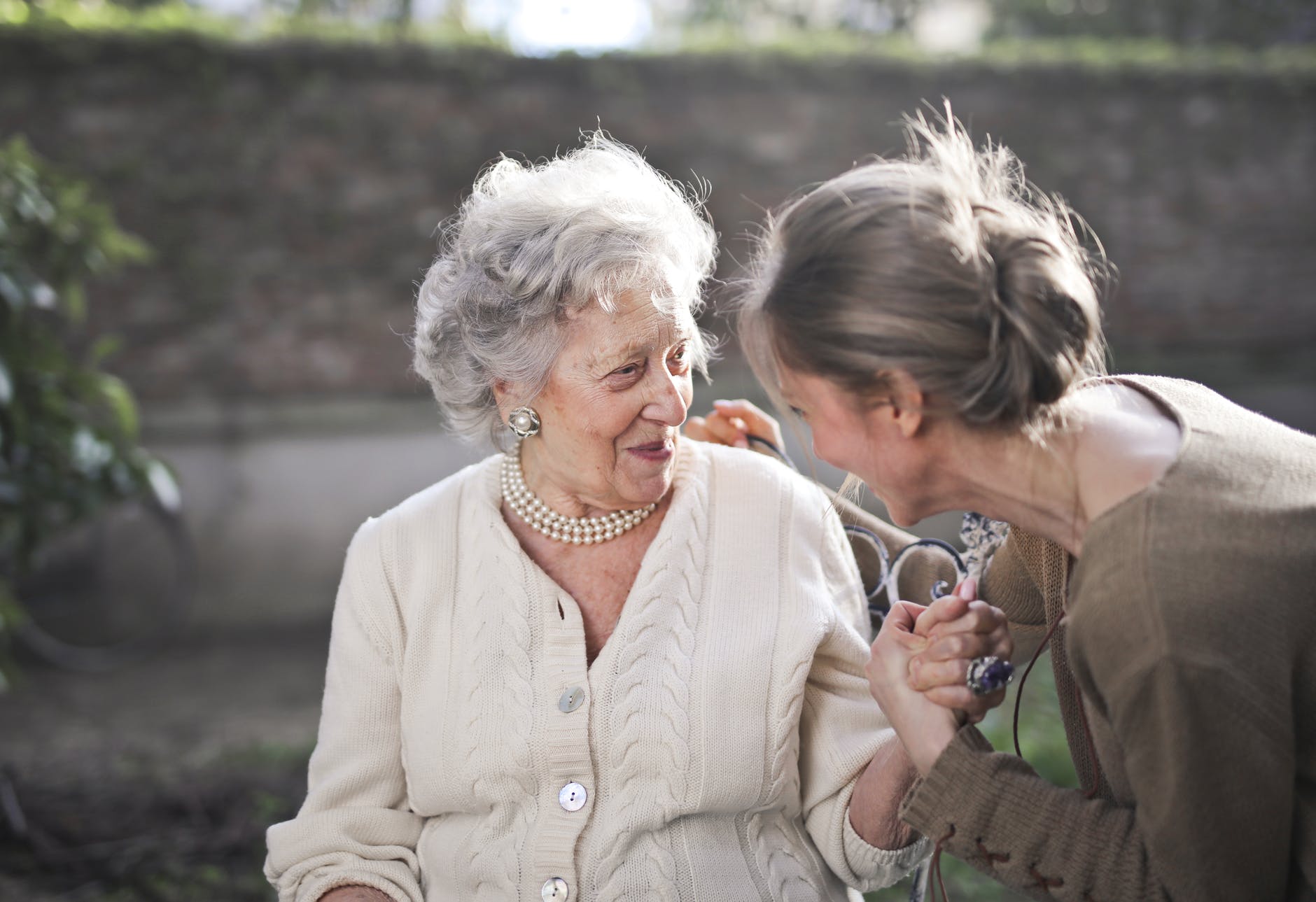Alzheimer’s disease is the leading cause of dementia. It is a progressive disease that gradually affects memory, thinking and, ultimately, your ability to take care of yourself.
Alzheimer’s disease is named after Dr Alois Alzheimer, who discovered the condition at the turn of the twentieth century. He discovered the disease after examining the brain of an elderly woman who had died of an unexplained illness.
The elderly woman’s brain was found to contain clumps now known as amyloid plaques and Neurofibrillary tangles (NFTs). These clumps and tangles are a primary marker of Alzheimer’s disease. They are caused by a build-up of protein in the brain and eventually cause nerve cells to die, leading to a loss in brain tissue.
Alzheimer’s disease symptoms
The signs and symptoms of Alzheimer’s disease are usually mild to begin with. This is because the initial build-up of proteins in the brain that cause the disease rarely affect the brain’s functionality straight away. It takes time for the proteins to reach a volume that can actually damage cells.
As the brain becomes more congested and cells begin to die, the symptoms of the disease gradually get worse. This is the main difference between Alzheimer’s disease and the usual changes in mental acuity that come with getting older.
In a lot of cases, the first indications that someone has Alzheimer’s disease are problems with memory – most notably, issues with learning new information and remembering recent events.
Alzheimer’s disease stages
Alzheimer’s disease can progress at different rates and the symptoms vary from person to person. That being said, the symptoms associated with Alzheimer’s disease are regularly broken down into three discrete phases: early, middle and late. These are sometimes referred to as mild, moderate and severe in medical contexts.
Early symptoms
The main symptoms of early Alzheimer’s disease are lapses in memory. Examples include:
- Forgetting recent conversations or events
- Losing or misplacing things
- Forgetting the names of people, places or objects
- Asking the same questions repeatedly
- Mood swings
- Confusion
Middle symptoms
As the illness progresses, lapses in memory continue to get worse. The sufferer may find it increasingly difficult to remember the names of people they know, and they may even struggle to recognise friends and family. When someone reaches this stage, they normally need some sort of additional support with day-to-day living.
Other symptoms include:
- Feeling more confused or disorientated
- Obsessive or repetitive behaviour
- Paranoia
- Aphasia
- Sleep disturbances
- Issues performing spatial tasks
- Depression
- Feeling increasingly agitated, frustrated or anxious
- Hallucinations

Late symptoms
In the final stage of the disease, the effects of the condition become more severe, often causing the sufferer and their loved ones significant distress. People in this stage of the disease will need full-time care.
Symptoms may include:
- Aggressive, suspicious or potentially violent behaviour
- Dysphagia
- Mobility issues
- Weight loss
- Incontinence
- Total loss of speech
Alzheimer’s disease life expectancy
On average, someone with Alzheimer’s disease will live for four to eight years after their condition is confirmed. However, some people can live as long as 20 years after diagnosis.
The period between someone getting Alzheimer’s and actually seeking help, sometimes referred to as preclinical Alzheimer’s, also lasts for many years. In fact, the time it takes for the first signs of Alzheimer’s disease to present and someone receiving a diagnosis is normally 2.8 years.
Alzheimer’s disease treatment
Amyloids – the packets of protein that build up in the brain – aren’t the only cause of Alzheimer’s disease. Other factors play a role too. Some people with Alzheimer’s disease have fewer neurotransmitters in their brain, making it harder for messages to pass from neuron to neuron. While other people have vascular issues that limit the supply of blood and nutrients to their brain. Because of this, there are non-curative treatments available for people with Alzheimer’s disease that can temporarily reduce their symptoms.
Medicines
Anti-dementia medications offer a temporary reduction in symptoms. You will need to speak with your GP or a specialist to find out which ones are right for you or your loved one.
Acetylcholinesterase (AChE) inhibitors
These medicines improve levels of a natural chemical in the brain that helps nerves cells communicate with each other. They can only be prescribed by psychiatrists and neurologists, but it is possible to get them from your GP on the advice of a specialist.
AChE inhibitors are for people with mild to moderate Alzheimer’s disease.
Memantine
This medication is not like AChE inhibitors. Instead of promoting communication between nerve cells, this medicine works by blocking the effects of excessive glutamate on the brain.
The drug is suitable for people with moderate to severe Alzheimer’s.
Therapies and activities
Cognitive Stimulation Therapy
Cognitive Stimulation Therapy, also known as CST, involves attending regular sessions in small groups led by a trained nurse or occupational therapist.
The sessions are designed to engage people with dementia, provide a comfortable learning environment and encourage social interaction. The benefits of the therapy are wide ranging and some research shows that CST can be just as effective as some anti-dementia drugs in people with mild to moderate Alzheimer’s.
Cognitive rehabilitation
This treatment involves working with a medical professional and someone you trust, such as a carer or family member, to learn a new skill or achieve a personal goal that supports your everyday living. Goals include using a smartphone or doing household chores.
The focus of this technique is to encourage you to use the healthy parts of your brain that are still active to engage the areas of your brain that are not. Doing so can improve your overall cognitive function and prolong your independence.
Reminiscence therapy
Reminiscence therapy involves talking about your life and the things or events you remember. It makes use of props such as photographs and music records and is normally performed one-on-one. Evidence shows that it can make those with dementia feel more confident in their abilities.
Click here to discover our Care technology solutions to give you and your loved ones support and provide peace of mind.
